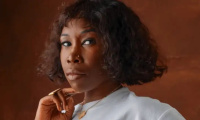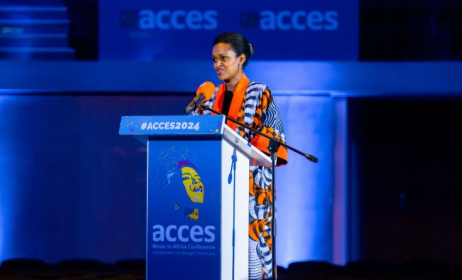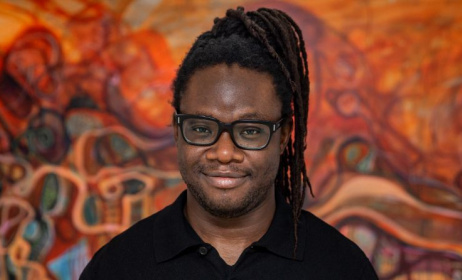How to create and leverage personal brand opportunities
The music industry has undergone some considerable transformations over the past two decades. Refining one’s musical ability, though essential, no longer guarantees one a clear path to success. To thrive in today’s music industry, an artist must stand above the growing crowd. Essentially, they must become a brand. Furthermore, the more recognisable an artist’s personal brand is, the more they can leverage it to generate diverse income opportunities.[1]
This article looks at how South African musicians can go about creating and leveraging personal brand opportunities.
What is a personal brand?
Personal branding, simply put, is the process of constructing a recognisable persona that will set one apart from the masses.[2] One’s personal brand is a combination of their unique skills, reputation and experiences. Musicians can leverage their personal brands to not only increase awareness of their work, thus expanding their following, but also to broaden the scope of their careers.[3]
The ubiquity of the internet has given artists at all stages of their careers equal ownership over their brands. The key decision-making power no longer sits disproportionately in the hands of major record companies. Lesser-known artists now also possess the means to produce significant personal brands that they can harness to build a loyal and sizeable audience.[4] If leveraged correctly, this ‘following’ (as it is generally called) can create career opportunities outside of the confines of writing, recording or performing music.
Video: In this video from AMPD Studios, Yvonne Chaka Chaka and Zolani Mahola discuss the importance of ‘seeing yourself as a brand’.
What to consider when creating a personal brand
Musicians looking to create a personal brand should keep the following four considerations in mind:
- Story. An online presence – in the form of a website and accounts across all relevant social media platforms – is the first of two potent starting points. The next would be figuring out one’s true essence as a musician by gaining an intimate grasp of what motivates one’s work. The act of gathering this self-knowledge – and developing the ability to express it from a third-person perspective – cultivates a sound foundation for artists to tell a compelling story about their work.[5]
- Visual identity. A strong visual identity is indispensable to any personal brand that aims to be deemed trustworthy and relatable to potential audiences. The effective use of visual elements such as a striking logo, colour palette and professional photos can amplify an artist’s story. The uniform use of these visual elements across all platforms makes their brand both distinguishable and memorable.[6]
- Consistency. A common thread needs to run through every facet of an artist’s engagement, both online and offline. Use the same images or logos across your social media accounts, and reinforce the visual imagery on gig posters and other promotional materials.[7]
- Speak to your audience. All social media platforms provide insights that help users to identify who makes up their core audience. This information can help artists tailor their messages accordingly, as well as to determine the best channels – and best times – to deliver these messages for the biggest response.[8]
According to Music In Africa’s Revenue Streams for Music Creators in South Africa 2022 report, persona licensing can fetch an average monthly income of R10 583.
Acting
Acting is a discipline that falls under the umbrella of the three major performing arts of drama, music and dance. It’s not difficult to imagine how a musical artist can translate the skills developed in the live music sphere to this domain, given the numerous common traits these two disciplines share.
Cape Town-born performance artist Inge Beckmann – former lead vocalist of award-winning alt-electro group LARK and rock band BEAST – is a perfect example of how effective this transition can be in the South African context.
Going into acting was something that Beckmann “always had on the back burner”, inspired by her grandfather who was also an actor. Yet, she found that the barriers to entry in this industry were fairly higher than those in the music industry, due to a pervasive belief that “if one isn’t theatre-trained, then they’re not an actor.” Despite this, Beckmann got her first “proper” role in one of director Micheal Matthew‘s first short films in 2009, and has since featured in more than 20 films and three TV shows, both locally and abroad. She comments on the importance of her musical background in making the transition to the silver screen, saying, “Music certainly opened doors for me.”[9]
While Beckmann acknowledges the key role that many years of refining her skills as a performer played, she also credits her success to having an agent who truly believes in her. Talent agents are a great way for artists to gain access to the world of acting, as they tend to have long-established connections with casting agents and production companies. This article from Backstage, a leading casting service that has been around since 1960, is a great resource for musicians looking to acquire an acting agent.
Acting and TV appearances represent a promising income stream for music creators in South Africa. According to Music In Africa’s report, this income source brings in an average monthly income of R15 852.
Video: Musician and actor Inge Beckmann stars in the South African horror film ‘8’, currently streaming on Netflix.
Podcasting
Podcasts are a great way for artists to share ideas, stories and experiences with a wide audience. Studies show that this can extend to around 16 million addressable listeners in South Africa alone.[10] The industry, which currently attracts 18.7% of all internet users, is also in a state of rapid growth, with a global audience of 500 million podcast listeners expected by 2024.[11]
A strong personal brand provides artists with an air of credibility that allows them to connect with a wide audience on an intimate level. Furthermore, the medium’s low barrier of entry also makes it accessible to lesser-known artists: anyone with an internet connection or cellphone mic can produce a podcast of reasonable quality.
Although podcasts do not currently generate royalties, they can still generate revenue. This is mostly achieved through advertising, with spending in this market projected to rise 300% between 2020 and 2025, although some podcast apps and media platforms will also pay creators licensing fees to host their content.[12] According to the Revenue Streams for Music Creators in South Africa 2022 report, podcasting can earn an average monthly income of R2 665.
A notable example of a South African musician hosting a successful podcast is the popular SlikourOnLife. This podcast is hosted by Siyabonga ‘Slikour’ Metane, whose role as a founding member of the award-winning hip hop group Skwatta Kamp makes him a trusted voice in South Africa’s urban and hip hop music scenes. His weekly podcast has also morphed into a YouTube channel featuring videos and releases from well-known South African artists, as well as a platform where up-and-coming artists can upload and share their music.[13]
Product endorsement
Having a formidable personal brand as an artist is also a great way to attract commercial brands, which are always seeking to put a face to their product. This form of advertising tends to yield better results for advertisers, as it makes their product stand out from the noisy cacophony of people and products. The high degree of trust and recognition that a well-known artist inspires in their fanbase can be practically linked to a brand, increasing sales of a product or service.[14]
Some notable partnerships between big brands and South Africans musicians include Cassper Nyovest and Nedbank, Ricky Rick and Remy Martin and Mafikizolo and Sanlam, in which the insurance company commissioned the duo to pen a song and create a music video for the campaign,
Product endorsement is one of the more desirable and high-earning streams of brand-related revenue available to South African artists, with an average income of R10 701 per month.[15] For this reason, we have included an entire article on brand partnerships in our Revenue Streams for South African Musicians series.
Final thoughts
As the music industry continues to shift and change, it is becoming more and more important for artists to find diverse ways of earning an income. By creating and leveraging a personal brand, South African musicians can discover additional revenue streams in related industries such as acting, podcasting and marketing partnerships.
Resources and citations
- [1] El Gamal, A. (2012). "The Evolution of the Music Industry in the Post-Internet Era". CMC Senior Theses. Paper 532. Accessed on January 26, 2022: http://scholarship.claremont.edu/cmc_theses/532
- [2] iCadenza. (2019). “How to Build Your Personal Brand As a Musician”. Accessed on January 26, 2022: https://www.icadenza.com/build-your-personal-brand/
- [3] Young, D. (2021). “10 things to do now to leverage your growth as a musician”. Hypebot. Accessed on January 26, 2022: https://www.hypebot.com/hypebot/2021/02/10-things-to-do-now-to-leverage-your-growth-as-a-musician.html
- [4] Wells, D. (2016). “3 Personal Branding Lessons From Taylor Swift, Adele, and Other Musicians”. Inc. Africa. Accessed on January 26, 2022: https://incafrica.com/donna-wells/3-things-music-rockstars-can-you-teach-about-your-personal-brand.html
- [5] Chertkow, R. & Feehan, J. (2019). “Define your persona, find your voice, and build your artist brand”. Disc Makers Blog. Accessed on January 26, 2022: https://blog.discmakers.com/2019/05/define-your-persona-build-your-artist-brand/
- [6] Wayne, R. (2020). “But I’m an Artist: Personal Branding for Creative People”. Medium. Accessed on January 26, 2022: https://medium.com/creative-juices/but-im-an-artist-46ecd14bffcd
- [7] Ibid.
- [8] Zote, J. (2021). “How to define and reach your target audience on social media”. Sprout Social. Accessed on January 26, 2022: https://sproutsocial.com/insights/target-audience/
- [9] Original interview for Music In Africa with Inge Beckmann: January 7, 2022.
- [10] Price, N. (2021). “The best 2020 South African podcasts”. The Daily Maverick. Accessed on January 26, 2022: https://www.dailymaverick.co.za/article/2021-01-01-the-best-2020-south-african-podcasts/
- [11] Insider Intelligence. (2021). “Podcast Industry Report: Market Growth and Advertising Statistics in 2022”. Accessed on January 26, 2022: https://www.insiderintelligence.com/insights/the-podcast-industry-report-statistics/
- [12] McCarthy, J. (2021). “4 things you need to know about the podcast ad spend rebound”. The Drum. Accessed on January 26, 2022: https://www.thedrum.com/news/2021/06/29/4-things-you-need-know-about-the-podcast-ad-spend-rebound#
- [13] Jenkin, D. (2016). “SlikourOnLife gives local kwaito and hip hop culture a voice”. Media Update. Accessed on January 26, 2022: https://www.mediaupdate.co.za/media/121972/slikouronlife-gives-local-kwaito-and-hip-hop-culture-a-voice
- [14] Le, O. (2019). Leveraging social media in the music industry. University of Texas at Dallas. Accessed on January 26, 2022: https://www.researchgate.net/publication/343850244_Leveraging_social_media_in_the_music_industry
- [15] Music In Africa. (2022). Revenue Streams for South African Music Creators.
This article is part of the Revenue Streams for African Musicians project, supported by UNESCO’s International Fund for Cultural Diversity in the framework of the UNESCO 2005 Convention on the Protection and Promotion of the Diversity of Cultural Expressions, the Siemens Cents4Sense programme, Siemens Stiftung, Goethe-Institut, the National Arts Council of South Africa and Kaya FM.
Editing by David Cornwell and Kalin Pashaliev



































Comments
Log in or register to post comments